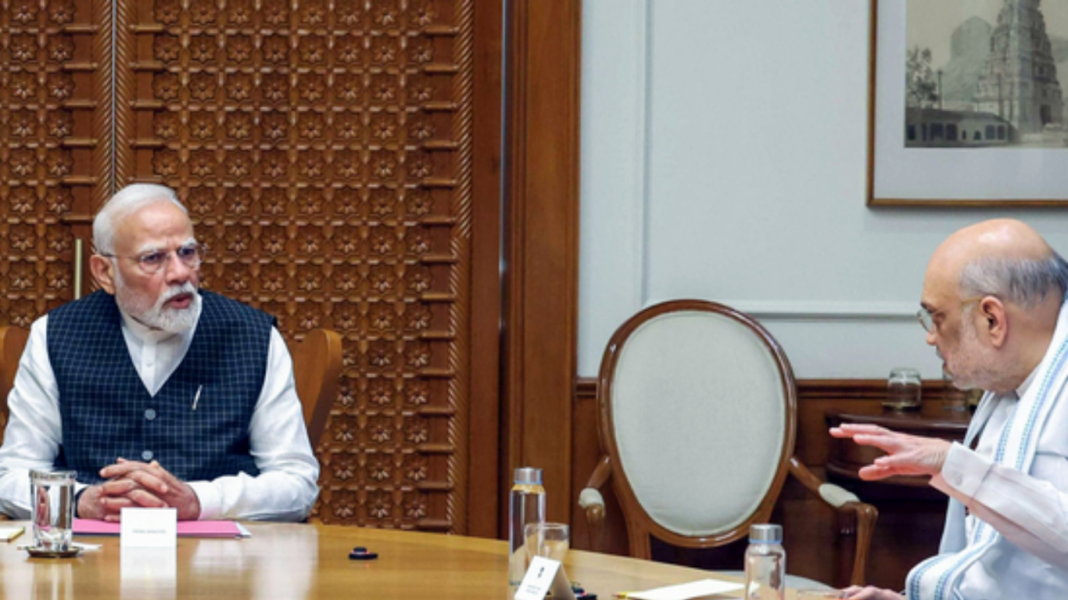
By: Isha Gupta
Introduction
India and Pakistan, two neighboring countries with a long history of political tension, are again in the spotlight after the recent Pahalgam terror attack. Following the incident, voices from within India have suggested reviewing or suspending the Indus Waters Treaty (IWT), a long-standing water-sharing agreement between the two nations. This article explores how such a move could affect Pakistan, especially in terms of water availability, agriculture, and regional stability.
What is the Indus Waters Treaty?
The Indus Waters Treaty was signed in 1960 between India and Pakistan with the help of the World Bank. It is one of the most successful water-sharing agreements in the world. According to the treaty:
- India got control over the eastern rivers: Ravi, Beas, and Sutlej.
- Pakistan got control over the western rivers: Indus, Jhelum, and Chenab.
India can use water from the western rivers for non-consumptive purposes like irrigation, hydropower generation, and transport, but it cannot block or divert the water flow.
Why Is India Considering Reviewing the Treaty?
The Pahalgam attack, in which several security personnel were injured or killed, has renewed tensions between India and Pakistan. Some officials and experts in India believe that Pakistan continues to support or harbor terror groups, directly or indirectly. As a result, calls to review or suspend the Indus Waters Treaty have resurfaced.
Such a suspension is seen as a way to pressure Pakistan diplomatically without direct military action. The idea is that reducing Pakistan’s access to water could serve as a strong warning.
How Important is the Indus Water for Pakistan?
For Pakistan, the Indus river system is critical. Nearly 80% of Pakistan’s agriculture depends on water from the Indus basin. Major crops like wheat, rice, and cotton are grown using this water. Pakistan’s drinking water, hydroelectric power, and industries are also largely supported by this river system.
Here’s how Pakistan uses Indus water:
- Irrigation: 90% of its food comes from irrigated land.
- Drinking water: Supplies many cities and rural areas.
- Hydropower: Dams on the Indus and its tributaries power homes and industries.
Any reduction in water flow could lead to crop failures, power shortages, and economic instability.
Legal and Technical Barriers to Suspension
While India may consider suspending the treaty, it is not that simple:
- The treaty is a legally binding international agreement.
- The World Bank is a guarantor and has a role in resolving disputes.
- Unilateral withdrawal could affect India’s global image and diplomatic relations.
- It may also impact Indo-Pakistan negotiations on other issues, including trade and peace talks.
However, India has started taking steps to maximize its usage of eastern river waters and even increase projects on the western rivers within the treaty’s limits.
What Would Happen If India Suspended the Treaty?
If India decides to stop or divert the water from western rivers:
- Water Scarcity in Pakistan: Cities and farms could face serious water shortages.
- Agricultural Losses: Crops might fail due to lack of irrigation.
- Power Cuts: Less water means reduced electricity from dams.
- Social Unrest: Scarcity can lead to protests and political instability.
- International Mediation: Global organizations may have to step in.
Environmental and Humanitarian Concerns
Cutting water flow can lead to droughts and ecological imbalance. River ecosystems could suffer. Millions of people in Pakistan rely on these waters for daily life. A sudden change could cause humanitarian crises such as food shortages and migration.
Could This Escalate Conflict?
Suspending the Indus Waters Treaty could increase military tensions. Pakistan might see it as an act of aggression. In a worst-case scenario, it could lead to retaliatory actions or even conflict.
Possible Alternatives for India
Instead of suspending the treaty, India could:
- Build more dams and canals to use its share fully.
- Improve water conservation and irrigation in its regions.
- Use diplomatic pressure and global forums to raise concerns about terror activities.
- Work with international bodies to seek treaty reforms.
Pakistan’s Response and Preparedness
Pakistan has always insisted that the treaty is essential for its survival. It has gone to international arbitration in the past whenever disputes arose. Pakistan may:
- Appeal to the World Bank and United Nations.
- Launch diplomatic campaigns to gain international sympathy.
- Try to restart talks with India to save the treaty.
However, experts say that Pakistan’s water management system also needs reforms. Poor storage, outdated irrigation, and mismanagement worsen the crisis.
Role of Global Community
If the situation worsens, countries like the United States, China, and the UN may try to mediate. Water security is a global issue, and any conflict in South Asia could affect global peace.
India’s image as a responsible regional power may be affected if it acts unilaterally. On the other hand, if Pakistan is proven to support terrorism, global sympathy may favor India.
Conclusion
The Indus Waters Treaty has survived wars and decades of tension between India and Pakistan. But rising terror incidents like the Pahalgam attack are testing the limits of patience. While suspending the treaty may seem like a strong move, it comes with legal, environmental, and diplomatic challenges.
India must weigh the consequences carefully. At the same time, Pakistan needs to ensure that its land is not used for activities that provoke such serious responses.
The way forward may lie in dialogue, improved water use, and international cooperation rather than direct confrontation.































